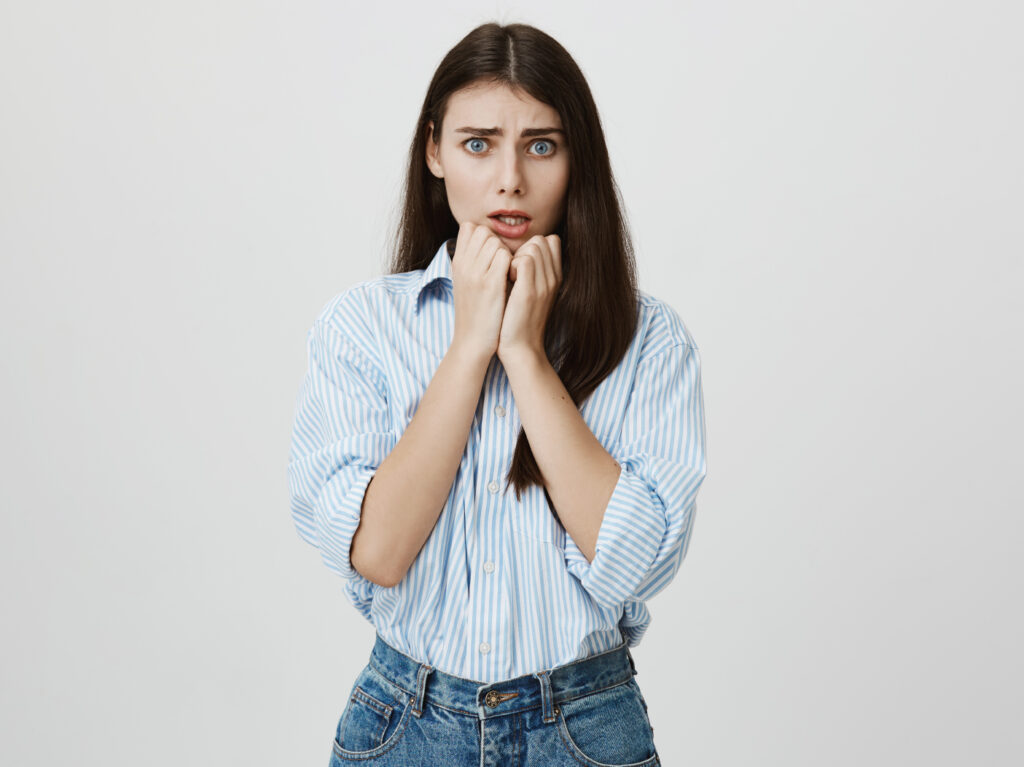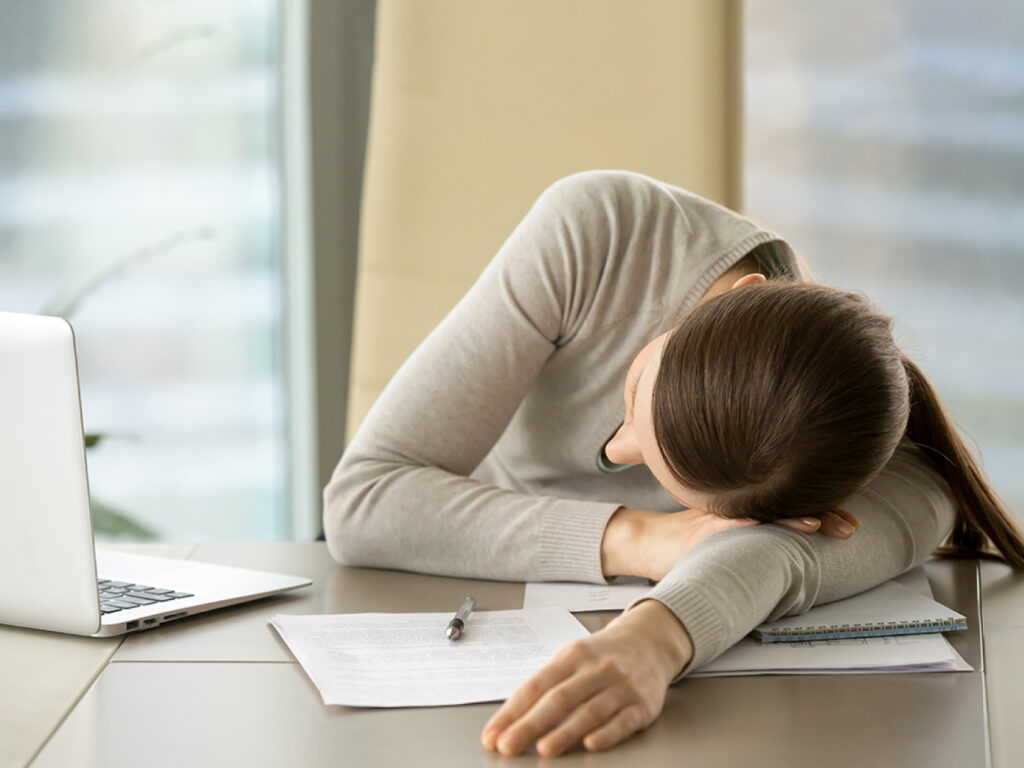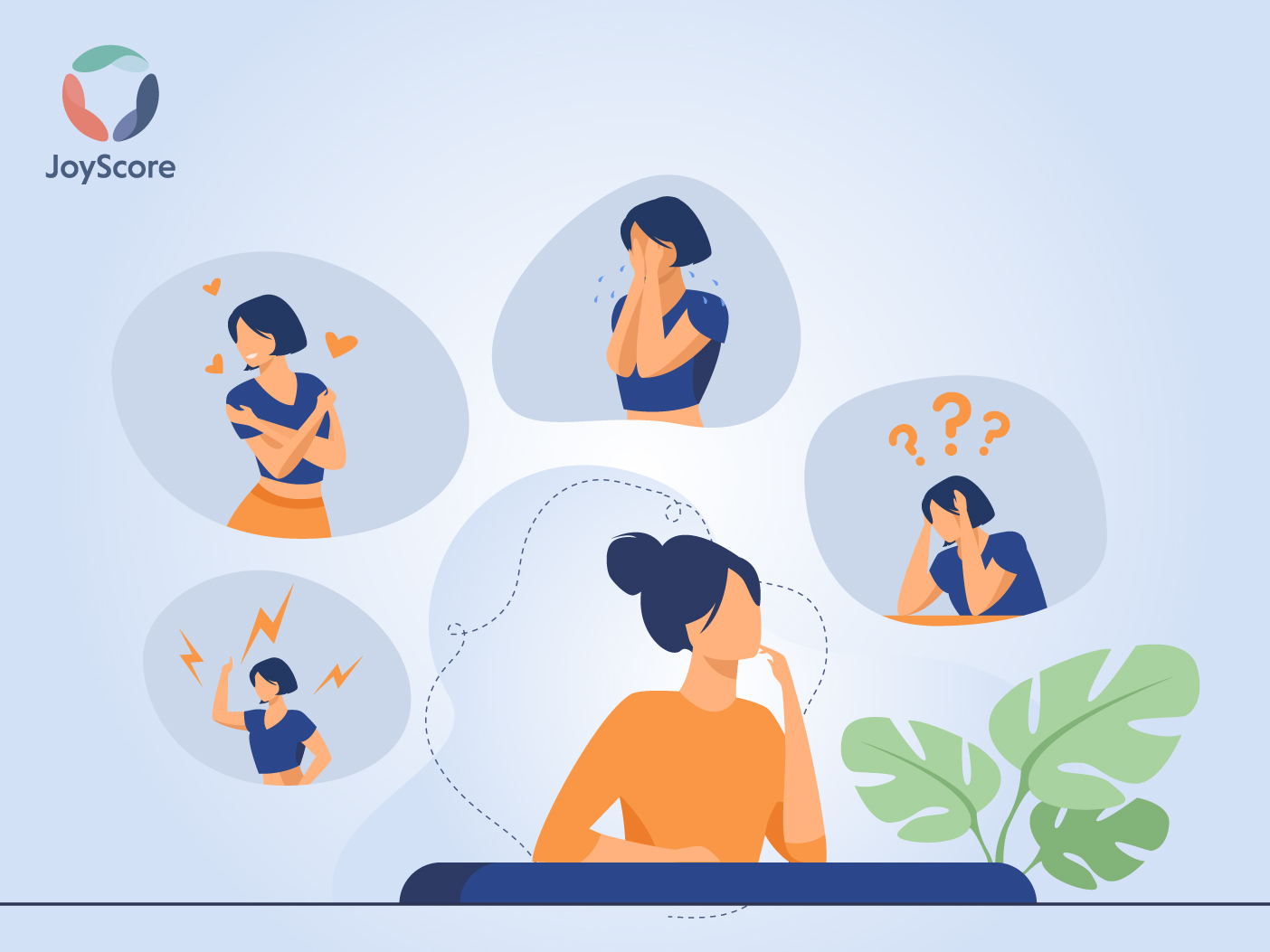Life is a blend of a little that we experience and mainly how we respond to it. Anxiety is the mind’s reaction to stress or fear of what will happen. Your first day at work, moving to a new place, approaching exams, an interview, public speaking, etc. can trigger nervousness and anxiety. Anxiety is becoming more common in today’s unprecedented COVID times as the situation was not anticipated and everyone was/is stuck at home.
But remember that an anxious mind results in an obnoxious life. If appropriately dealt with, anxiety can also motivate you to perform better, for example, a job interview. But if left unattended and untamed, it can lead to severe anxiety disorder and other mental problems like depression.

Signs that you might be anxious:
- You feel scared, have racing thoughts in mind, tend to overthink, or worry too much
- Lack of patience and restlessness
- Difficult to concentrate on a specific task
- Inconsistent sleeping pattern like trouble falling asleep and waking up in the middle of the night
- Getting startled or irritated easily and changes in appetite
- Panic attack occurrence because of extreme fear accompanied by shallow and fast breathing, rapid heartbeat, sweating, shaking, dry mouth, short breath
- Extreme tiredness, lack of energy, dizziness are few other signs
But, everyone who worries a lot may not have an anxiety disorder. You may also feel anxious because of a tight schedule, lack of sleep, pressure at work, or even from too much caffeine. An unhealthy and stressful lifestyle can make you even more anxious. So, before opting for medications, try to alter your lifestyle as it might be useful to cope with the symptoms.

Some tips to help you lower anxiety and manage symptoms:
- Stay connected with your trusted loved ones, and share the concerns bothering you because seclusion and loneliness can worsen anxiety while talking about it might calm you down
- Review your responsibilities and try to share or delegate them to others to manage your stress levels
- Practice relaxation techniques such as meditation, visualizing techniques, yoga, and deep breathing as they get rid of chaotic thoughts from your mind, restore normal breathing, and eases anxiety
- Exercise is a stress buster and anxiety reliever. Try to ingrain at least 30 minutes of exercise in your routine. Start with simple ones, may it be stretching or walking in a park
- Get quality sleep of 7-8 hours every night as sleep deprivation can increase anxious thoughts. Hence, avoid using your phone in bed, avoid caffeine before bedtime
- Consider reducing your caffeine intake, alcohol, cigarette consumption as it stimulates higher levels of anxiety
- Stick to a healthy diet by staying hydrated, eliminating processed foods, eating plenty of fruits, vegetables, whole grains, and lean proteins. Artificial flavors, sugar, and preservatives in processed foods may cause mood changes and impact temperament
- Lastly, try to accept uncertainties, challenge your thoughts, and end this mental habit of worrying
Therefore, proper self-care is vital to manage your anxiety levels, and nothing diminishes it faster than action. Especially activities like breathing in a particular pattern can help you reduce anxiety in an instance. So, act now and download the JoyScore app to experience calmness and peace in your life. And remember to live in the moment to take charge of your life.



